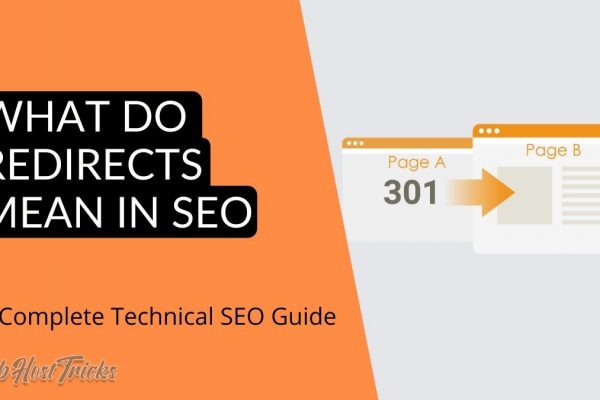Welcome to the exciting journey of SEO and keyword research. In today’s digital landscape, where everyone is vying for online visibility, understanding the significance of keywords is essential. The power of SEO lies in its ability to connect you with your target audience by ensuring your content ranks high on search engine result pages (SERPs). And at the heart of SEO lies the art of keyword research.
The Significance of Keywords
Defining the Core Concept
To embark on this journey, we must first define our compass. Keywords are the core elements of SEO. They are the words and phrases users type into search engines to find the information, products, or services they seek. Think of them as the signposts guiding users to the digital destinations they desire. But not all signposts are created equal.
The art of keyword research involves selecting the right signposts, ensuring they are not only relevant but also effective in attracting the right audience. It’s not merely about words; it’s about understanding your potential readers, clients, or customers, and speaking their language.
The Competitive Edge
In a digital realm teeming with websites, blogs, and online businesses, standing out can be a daunting task. This is where keywords come to your rescue. The right keywords can give you a competitive edge, enabling you to connect with your audience, drive organic traffic, and, ultimately, convert visitors into loyal customers.
But how do you find these elusive, high-impact keywords that can transform your digital presence? The answer lies in the toolbox of SEO tools for keyword research.
The Toolbox: SEO Tools for Keyword Research
1. Google Keyword Planner
A Comprehensive Keyword Research Starter Kit
Google Keyword Planner is like the Swiss Army knife of keyword research. It’s your first step in the exciting world of keyword discovery. The best part? It’s free! Whether you’re a newbie or a seasoned SEO expert, this tool provides valuable insights into keyword trends, search volume, and competition levels.
You can start with a basic keyword or keyphrase, and Google Keyword Planner will provide you with a list of related keywords along with crucial data. It’s like having a treasure map with all the X’s marked.
2. SEMrush
Unleash the Power of Competitive Intelligence
SEMrush is the digital marketer’s secret weapon. It’s a comprehensive SEO suite that not only helps you find relevant keywords but also provides in-depth competitor analysis. By understanding what keywords your competitors are targeting, you can identify lucrative opportunities and craft a strategy to outperform them.
Moreover, SEMrush offers a wide range of tools to monitor your own website’s performance and identify areas for improvement. It’s like having a crystal ball to predict your digital future.
3. Ahrefs
Dive into an Ocean of Keywords
Ahrefs is another heavyweight in the SEO arena. It boasts an extensive keyword database, allowing you to explore niches you might not even know exist. Not only can you find keywords, but you can also monitor your keyword rankings over time, ensuring your SEO strategy remains on track.
If you’re aiming for the stars in the SEO universe, Ahrefs provides the rocket fuel to propel you there. It’s not just about keywords; it’s about keyword domination.
4. Ubersuggest
Neil Patel’s Gift to Keyword Enthusiasts
Ubersuggest is a user-friendly tool that caters to both beginners and experienced marketers. It offers keyword suggestions, search volume data, and keyword difficulty scores. With a simple and intuitive interface, Ubersuggest can kickstart your keyword research journey and provide you with the insights needed to formulate a robust SEO strategy.
In the world of keyword research, simplicity is often the key to success, and Ubersuggest opens that door. It’s like having a conversation with a wise mentor who guides you through the intricacies of keywords.
5. Moz Keyword Explorer
Simplicity Meets Effectiveness
Moz Keyword Explorer focuses on simplicity and effectiveness. It helps you discover new keywords and prioritize them based on their potential impact on your SEO efforts. If you’re looking for a tool that doesn’t overwhelm you with data but delivers the essentials in a clear and concise manner, Moz Keyword Explorer is your answer.
In the complex world of SEO, sometimes, simplicity is the key to success. It’s like having a trusted friend who provides straightforward advice.
Read More: Top 5 Keyword Research Tools for SEO
The Art of Keyword Research
Step 1: Define Your Goals
Before you embark on your keyword research journey, it’s crucial to define your goals. What do you want to achieve through SEO? Are you looking to increase website traffic, boost sales, or create brand awareness? Your goals will shape your entire keyword strategy.
For example, if your primary goal is to increase website traffic, your keyword research should focus on high-traffic, relevant keywords that attract a broad audience. If you want to boost sales, you may prioritize keywords with a strong commercial intent.
Understanding your goals not only helps you in selecting the right keywords but also in measuring the success of your SEO efforts.
Step 2: Brainstorming
Now that your goals are clear, it’s time to get creative. Start by brainstorming a list of potential keywords related to your business, blog, or content. This initial list will serve as your “seed keywords” from which you’ll grow your keyword strategy.
For instance, if you’re running a blog about vegan recipes, your seed keywords might include “vegan diet,” “plant-based recipes,” or “healthy vegan meals.” These are the building blocks from which you’ll expand your keyword portfolio.
Step 3: Use Keyword Research Tools
The magic happens when you take your seed keywords and put them through the powerful keyword research tools we’ve discussed. These tools will provide you with a treasure trove of keyword data, helping you discover new, related keywords, search volume, and competition levels.
As you input your seed keywords, the tool will generate a list of suggestions. In the case of Google Keyword Planner, you’ll find data such as average monthly searches and the level of competition for each keyword. This data is invaluable in deciding which keywords to target.
Step 4: Analyze Competitor Keywords
Your competitors are not just rivals; they’re a source of valuable information. Tools like SEMrush and Ahrefs enable you to analyze your competitors’ keyword strategies. You can identify which keywords are driving traffic to their websites, giving you insights into which keywords are most effective in your niche.
This step is akin to espionage in the digital marketing world. By understanding what keywords are working for your competitors, you can strategically position your website to compete effectively.
Step 5: Refine and Organize
By now, you should have a substantial list of keywords. But not all of them are created equal. Some will be more valuable than others in achieving your specific goals. It’s time to refine and organize your keyword list.
Start by removing keywords that are either highly competitive or unrelated to your content. Aim for a sweet spot between search volume and competition, because while high-traffic keywords are enticing, if the competition is intense, it’s often wiser to target keywords with slightly lower search volume but lower competition, enabling you to distinguish yourself and attain superior outcomes.
Organize your refined keywords into different groups or categories. For example, if you’re running an e-commerce website, you might have separate groups for product-related keywords, category-related keywords, and informational keywords. This organization will help you tailor your content to specific user intents.
Remember that the art of keyword research is an ongoing process. It’s not a one-and-done task. Markets evolve, user behaviors change, and new trends emerge. To stay competitive, you should periodically revisit your keyword strategy and adapt it to these shifts.
The Conclusion
In the fast-paced world of digital marketing, keyword research remains a constant. It’s the compass that guides your content and digital strategy. By finding and optimizing for the right keywords, you’re not just improving your chances of appearing on the first page of search results; you’re creating a better user experience.
So, what’s the bottom line? Effective keyword research is the cornerstone of successful SEO. In a competitive online world, the importance of finding the right keywords cannot be overstated. You’re not just writing content; you’re crafting a digital journey for your audience. Use SEO tools to make this journey memorable, efficient, and rewarding.
Don’t hesitate to take the first step on this exciting journey to unlock the power of SEO and keyword research. Dive into the toolbox of SEO tools, choose the ones that align with your goals, and watch your digital presence soar.
Frequently Asked Questions (FAQs)
Yes, there are free keyword research tools, and one of the most notable ones is the Google Keyword Planner. It’s a great starting point for those exploring the world of keywords.
Choosing the right keywords involves aligning them with your business goals. Look for keywords that not only attract traffic but also resonate with your target audience. A balance between search volume and competition is crucial.
While keyword research tools are invaluable, SEO success is a multifaceted endeavor. Content quality, on-page optimization, backlinks, and other factors also play a significant role in your website’s performance in search results.
Keyword research is the launchpad for your SEO journey, and it’s just the beginning. It’s a path that evolves, where learning and adaptation are essential for staying ahead in the digital landscape. So, take that first step, and watch your digital presence soar.







